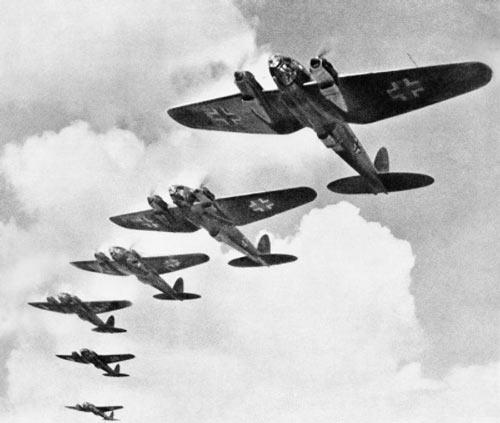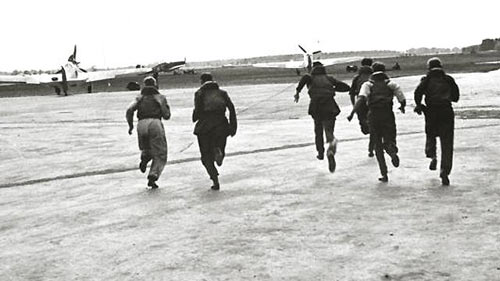The Few

There are flags coming down today, and this date will be remembered far into the future.
It is eerie to be reading- and laboriously typing- ancient documents to get the context of the conflict, the ideas and determination that drove the determining events of the middle portion of the Republic’s life. I have a lot more typing to do to have something decent for you, so bear with me.
We are in another one, now. A trusted correspondent wrote a long piece comparing our state of affairs as being analogous to the transition fro the Roman Republic to that of the Empire of Caesar. I guess we will see, won’t we?
Anyway, as an aside, this is a momentous day in the history of another Empire, the greatest of modern times. The realm of the sceptered isles: Britain’s.
On 18 June 1940, Churchill gave a rousing speech to the British people, announcing: “… the Battle of France is over. The Battle of Britain is about to begin.” Four days later, France surrendered to Germany and Hitler turned his attention to the unsinkable aircraft carrier of the British Isles.
German air superiority in the south of England was essential before Hitler could contemplate an invasion so Hermann Goering, the head of the Luftwaffe, was told that the RAF had to be “beaten down to such an extent that it can no longer muster any power of attack worth mentioning against the German crossing.”
Although on paper the Luftwaffe appeared to have the advantage in numbers of planes, pilots and experience, the two air forces were, in fact, evenly matched. The short range of the German planes and the fact they were fighting over enemy territory were both serious disadvantages for the Luftwaffe. The RAF also had radar, a priceless tool for detecting enemy raids- and the new development of “meaconing” which snagged German radar, manipulating the signals and causing the Germans to often drop bombs on empty farmland.
I will tell you the electronic story of “Headache” and “Aspirin” some time. It was part of the “Wizard War” that along with breaking the German Enigma code system that snatched victory from the jaws of certain defeat.
The battle began today, 75 years ago. We ought to remember The Few, the pilots of the Royal Air Force who gave it their all.
Initially, they flew against the Luftwaffe attacks on the coast. In August, Goering turned his attention to the destruction of the RAF itself, hitting airfields and radar installations. Convinced that Fighter Command’s resources were exhausted, in September he began an assault on the civilian population in London and other civilian urban centers. Coventry died, and Churchill had to let the attack go largely unanswered, left the Ultra Secret be compromised.

Eleven days later, on what became known as ‘Battle of Britain Day’ and the Finest Hour, the RAF savaged the huge incoming Luftwaffe formations in the skies above London and the south coast.
It was now clear to Hitler that his air force had failed to gain air superiority so, on 17 September, he postponed his plans to invade Britain. His attention was now focused on the invasion of the Soviet Union, although the Luftwaffe continued to bomb Britain until the end of the war.
It’s difficult to establish an exact figure of how many aircraft were shot down in the Battle of Britain, partly because both sides tended to exaggerate their successes and downplay their losses. However, it’s estimated that between 10 July and the end of October 1940, the RAF lost around 1,023 aircraft while the Luftwaffe lost 1,887.
That is too unemotional an account of the tally sheet. My Uncle Jim was working for Eastman Kodak during the war, designing gun cameras and optical target acquisition systems. He met an RAF pilot in 1942 who had been one of The Few. He recalled asking him what it had been like. The Englishman shrugged.
“I don’t really remember,” he said. “It was all a blur. “I recall waking up in the cockpit of my Spitfire. The canopy was open, and I had a bag of thermite grenades in my lap. I think I was attacking German patrol boats. But we were so tired all the time I didn’t really know. I threw some more grenades and completed the sortie. That is what it was like.”
For the men who saved Britain. On this day, remember The Few.
Copyright 2015 Vic Socotra
www.vicsocotra.com
Twitter: @jayare303
